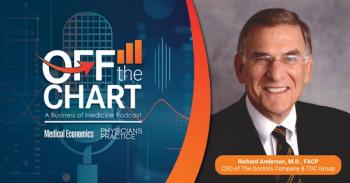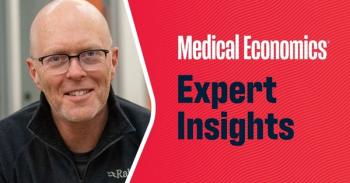
Addressing social determinants of health the key to better compliance
You truly have to walk a mile in a patient’s shoes to find out the true barriers to improving their well-being.
Editor's Note: Welcome to Medical Economics' blog section which features contributions from members of the medical community. These blogs are an opportunity for bloggers to engage with readers about a topic that is top of mind, whether it is practice management, experiences with patients, the industry, medicine in general, or healthcare reform.
My daughter is three years old and is now into all things Disney. A princess dress is proper attire for any occasion, especially trips to the coffee shop and grocery store. On constant loop are songs from all the different animated movies. I must have never really paid attention to the lyrics growing up-or maybe because English is my second language-but I am now noticing that some of the truths expressed in the songs are rather profound.
One song that has recently struck a chord is “Colors of the Wind” from Pocahontas (I have to admit, she was my childhood princess crush). The song begins with her rebuke of John Smith’s ethnocentric condescension:
“You think I'm an ignorant savage
And you've been so many places
I guess it must be so
But still I cannot see
If the savage one is me
How can there be so much that you don't know?
You don't know...”
I wonder how many patients leave their appointments with similar thoughts about me. I have traveled high and wide through the exotic places of medical school and residency, accumulated knowledge and skills (verified by my degrees and certifications), and thus able to conclude the patient encounter with the correct diagnosis and treatment plan of how my patients can become well.
At our next appointment, my expectation is that my patients adhered to the plan without question, and if they failed to follow through, my reaction is annoyance, frustration, and judgment. These patients get the nasty label of “medically non-compliant,” which actually has its own ICD-10 code: z91.19.
With each year working in an underserved community, I am learning again and again that my patients’ “non-compliance” has less to do with a willful decision to disregard my medical advice, but much more to do with my poor understanding of the many barriers they face toward becoming healthy, and my failure to adjust my treatment plan accordingly.
I have been so fortunate to be involved in a multi-disciplinary program to promote wellness amongst one of the most vulnerable patient populations: the chronically homeless with severe mental illness, substance use disorder, and chronic disease. I have the opportunity to partner with a team of social workers, nurses, and mental health providers to provide patients not just access to physical and mental health care, but also to housing, food, and social services.
Bridging the care gap
One of my responsibilities is doing street outreach to try to engage patients who have been reluctant to connect to care. One such patient was seen initially at our clinic, having recently been released from jail and had run out of all his medications. He was only in his forties, but already had heart failure from uncontrolled hypertension and chronic alcohol abuse.
He was furious when we told him his insurance had been deactivated, thinking we were the cause. Fortunately, we were able to get him back on most of his medications through our dispensary, and the team was working to get his insurance reactivated. Still, he stormed out of our clinic, cursing out the staff. Being intoxicated did not help the situation.
The team asked me to do an outreach with him in the following weeks to see if we could salvage any semblance of a bridge. He was homeless so I met him at a bus stop with his social worker and the following conversation ensued:
Me: How are you feeling?
Patient: Not too good, I’m so tired all the time and get short of breath just walking a short distance.
Me: Have you been taking your medications? We were able to refill most them so you should be feeling better.
Patient: No. Last time was like a week ago.
Me: You know taking the meds is important right? How come you haven’t taken them? (In my head: Of course you feel bad. If only you would just do what I said you would start to get better.)
Patient: (points to other street corner) Well, I hide my stuff behind the trees there and all my meds are in my bag. I only go to my stuff once a week or so or else people will see and steal it. When I go, I take my meds.
Me: oh... (looking away in shame)
This patient encounter gut punched me right in my heart, highlighting my arrogance in thinking I had all the answers when in reality, I was so ignorant of the true barriers to health this patient faced. He had daily worries and fears that would never cross my mind, and unfortunately, would never have informed my treatment plan.
I doubt any patient refuses to take medications because he or she wants to feel bad. All sorts of factors contribute to patient non-compliance, and it is my job is to understand and identify those and (sometimes creatively) address them. Sadly, the current health delivery system with our 15-minute time slots and ever-growing checking list of audit requirements makes it difficult to see, hear, and really understand where our patients are coming from and the barriers they face. Fortunately, there is headway being made with approaches like housing first, harm reduction, and trauma-informed care, but there is much still to be done.
My patient was enrolled in our program and began to receive medication management from our team nurses. They got him a pillbox small enough to keep on his person and would weekly arrange his daily medications. Eventually, with the help of our social workers, he was able to secure housing, and since then has been taking his medications on his own. With regards to his health, he still has a ways to go (still working on that alcohol intake), but he is at such a better place compared to when we first met him.
It really is true that we have to walk a mile in another person’s shoes in order to have a window into the challenges he or she faces. Of course, Pocahontas already tried to teach me that though “Colors of the Wind”:
“But if you walk the footsteps of a stranger
You'll learn things you never knew, you never knew”
I hope and pray that my daughter gets it the first time around.
Jack Tsai, MD, is a family physician at The Children’s Clinic, “Serving Children and Their Families,” a Federally Qualified Health Center in Long Beach, Calif.
Newsletter
Stay informed and empowered with Medical Economics enewsletter, delivering expert insights, financial strategies, practice management tips and technology trends — tailored for today’s physicians.






